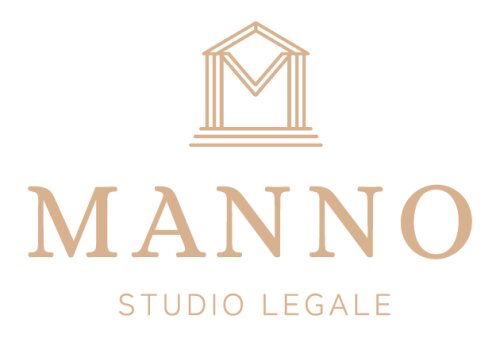Best Landlord & Tenant Lawyers in Lecce
Share your needs with us, get contacted by law firms.
Free. Takes 2 min.
Free Guide to Hiring a Real Estate Lawyer
List of the best lawyers in Lecce, Italy
About Landlord & Tenant Law in Lecce, Italy
Landlord and tenant law in Lecce, Italy, operates under the broader framework of Italian civil law, with specific rules and practices shaped by both national legislation and local customs. Lecce, a historic city in the Apulia region, has a vibrant real estate market, including residential, commercial, and student accommodations due to its prominent university. Landlord & tenant relationships are governed primarily by the Italian Civil Code and special laws such as Law 431/1998 for residential leases and Law 392/1978 for commercial leases. The local context in Lecce introduces considerations like tourism, seasonal rentals, and older property conditions, which can impact legal obligations and tenants' rights.
Why You May Need a Lawyer
Navigating landlord and tenant issues in Lecce can be complex due to the interplay of Italian legal requirements, contractual nuances, and the potential for disputes. Typical situations where legal help is often needed include:
- Drafting, reviewing, or negotiating lease contracts
- Eviction processes, both for landlords and tenants
- Deposit disputes and reimbursement claims
- Issues related to maintenance, repairs, and habitability
- Termination or renewal of leases
- Legal notices and changes to rental terms
- Unlawful rent increases or security deposit retention
- Short-term and tourist rental compliance
- Resolving conflicts related to subletting or unauthorized occupants
A local lawyer specializing in landlord & tenant law can clarify your rights, assist with paperwork, represent you in negotiations or court, and help ensure compliance with all legal requirements.
Local Laws Overview
The legal framework for landlord and tenant engagements in Lecce hinges on national as well as local regulations:
- Lease Agreements: Must be in written form and registered with the Agenzia delle Entrate (Tax Office); verbal agreements are generally not enforceable.
- Deposits: Security deposits are common, usually amounting to 2-3 months’ rent and must be returned within a specified time after the contract ends, subject to deductions for damages.
- Duration of Contracts: Standard residential leases (Law 431/1998) are for 4+4 or 3+2 years, while temporary and student contracts have shorter terms.
- Rent Regulation: The rent amount may be negotiated, but there are limits and requirements for certain types of contracts, such as “canone concordato” (agreed rent) for tax benefits.
- Maintenance: Landlords are generally responsible for major repairs and structural issues, while tenants manage routine maintenance unless otherwise stated in the contract.
- Eviction: Eviction requires a court procedure unless the tenant voluntarily vacates. Reasons include non-payment, contract expiration, or other valid causes.
- Termination: Tenants and landlords must observe formal requirements for giving notice, usually in writing and within specified time frames.
- Short-term & Tourist Rentals: Rising in Lecce, these rentals must comply with local regulations, including registration and, where applicable, tourism taxes.
- Utilities: Who pays for utilities should be clearly outlined in the contract; disputes over unpaid bills are common.
Being aware of these local and national requirements helps both landlords and tenants avoid disputes and ensure their arrangement is legally sound.
Frequently Asked Questions
What is the standard length for a rental contract in Lecce?
Standard residential lease contracts are either 4+4 years or 3+2 years, though shorter terms can be agreed for students or temporary situations. Commercial leases have different durations, typically a minimum of 6+6 years.
Is it necessary to register a rental contract?
Yes, Italian law mandates that all rental contracts be registered with the Agenzia delle Entrate within 30 days of signing. Unregistered contracts can lead to fines and loss of rights for both parties.
How much deposit can a landlord request?
Security deposits are typically equivalent to 2-3 months’ rent. This must be returned at the end of the contract, minus any deductions for damages beyond normal wear and tear.
What are common reasons for eviction in Lecce?
Non-payment of rent, expiry of the lease term, unauthorized subletting, or substantial breach of contract are common grounds. Eviction usually requires court action unless settled amicably.
Can landlords increase rent during the lease?
Rent increases are regulated and usually only allowed at contract renewal or when linked to inflation indexes, unless otherwise specified in the contract.
Who is responsible for maintenance and repairs?
Landlords handle structural issues and significant repairs; tenants are responsible for ordinary, day-to-day maintenance unless differently agreed in writing.
What are the tenant’s rights if the property is in poor condition?
Tenants can request repairs and, in some cases, a rent reduction or contract termination if the landlord fails to maintain habitability standards.
Is subletting allowed?
Subletting is only permitted if explicitly authorized in the contract. Unauthorized subletting can result in eviction.
What happens if a tenant leaves before the end of the lease?
Tenants can terminate the contract early for “just cause” (such as job transfer) but must follow notice periods as stipulated in the contract, typically 6 months.
How can disputes be resolved?
Many disputes are resolved through negotiation or mediation, but unresolved cases can be brought before the local justice of the peace or ordinary courts. Legal assistance is often advised for court proceedings.
Additional Resources
If you need further assistance or official information, consider contacting or consulting the following resources:
- Agenzia delle Entrate (Revenue Agency): For information on contract registration and tax matters
- Comune di Lecce (Lecce Municipality): Offers local regulation details and services for residents
- SUNIA – Sindacato Unitario Nazionale Inquilini e Assegnatari: A tenants’ association offering support and advice
- Confedilizia: An association representing property owners, offering legal and practical advice to landlords
- Local Legal Aid Offices (Ufficio di Consulenza Legale): Provide low-cost or free legal consultation in some cases
- Chamber of Commerce of Lecce: For commercial rental regulations
Next Steps
If you find yourself facing a landlord & tenant issue in Lecce, here are some practical next steps:
- Gather Documentation: Collect all relevant contracts, correspondence, receipts, and photographs of the property.
- Clarify Your Situation: Identify the specific issue (e.g. payment dispute, maintenance, eviction) and the outcomes you are seeking.
- Contact a Qualified Lawyer: Seek a local lawyer specializing in landlord & tenant law who can provide targeted advice based on local practices in Lecce.
- Consult Tenants’ or Landlords’ Associations: These organizations can offer preliminary guidance and may assist with negotiations.
- Consider Mediation: For less severe disputes, mediation services can be quicker and less expensive than court.
- Stay Informed: Regularly check updates to local and national laws that may affect your rights or obligations.
Addressing landlord & tenant matters with the right information and professional assistance can save time, costs, and prevent unnecessary stress.
Lawzana helps you find the best lawyers and law firms in Lecce through a curated and pre-screened list of qualified legal professionals. Our platform offers rankings and detailed profiles of attorneys and law firms, allowing you to compare based on practice areas, including Landlord & Tenant, experience, and client feedback.
Each profile includes a description of the firm's areas of practice, client reviews, team members and partners, year of establishment, spoken languages, office locations, contact information, social media presence, and any published articles or resources. Most firms on our platform speak English and are experienced in both local and international legal matters.
Get a quote from top-rated law firms in Lecce, Italy — quickly, securely, and without unnecessary hassle.
Disclaimer:
The information provided on this page is for general informational purposes only and does not constitute legal advice. While we strive to ensure the accuracy and relevance of the content, legal information may change over time, and interpretations of the law can vary. You should always consult with a qualified legal professional for advice specific to your situation.
We disclaim all liability for actions taken or not taken based on the content of this page. If you believe any information is incorrect or outdated, please contact us, and we will review and update it where appropriate.










